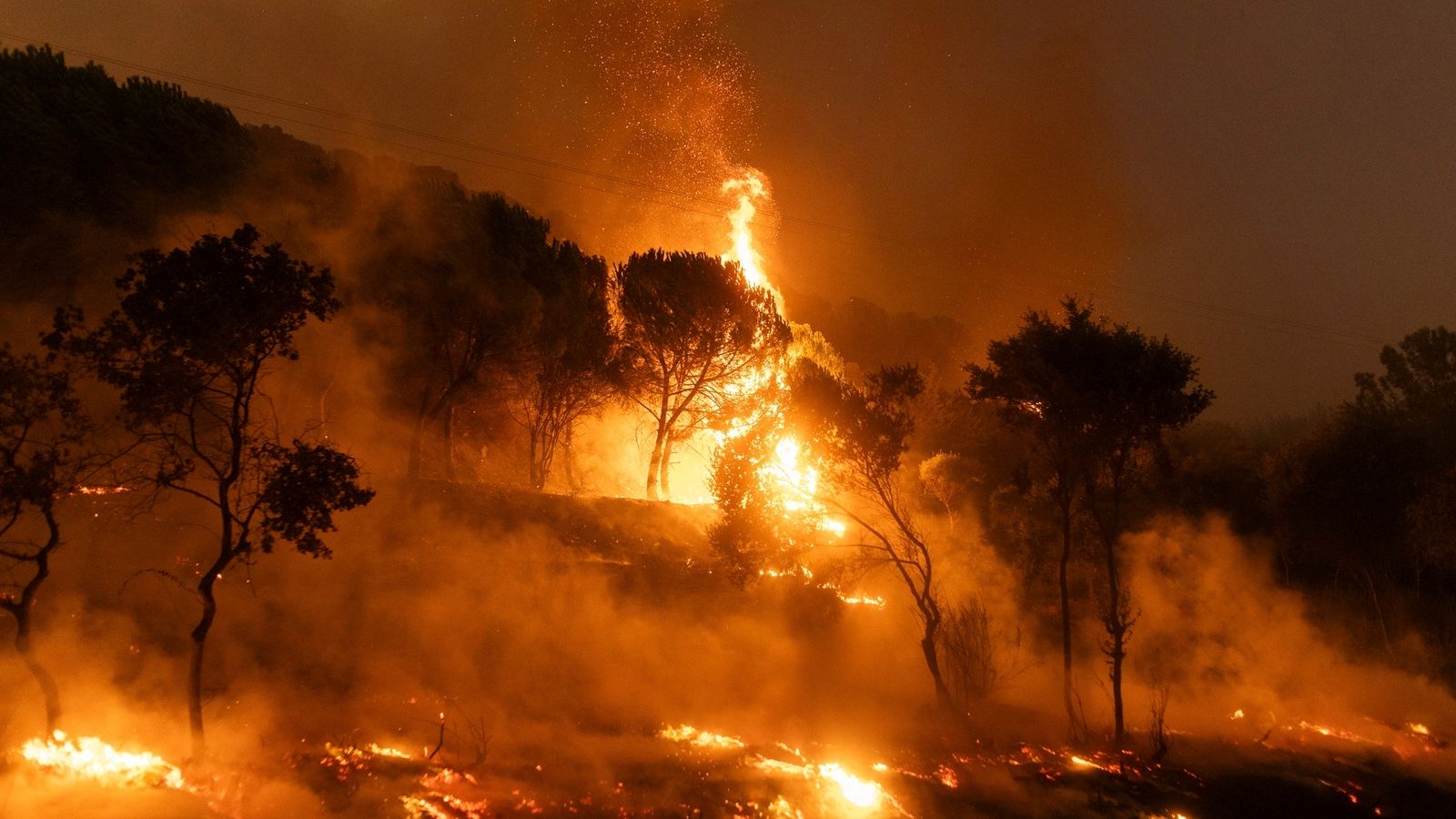The world is falling well short of the action needed to avoid serious climate disruption from rising temperatures, a major new report has warned.
A “global stocktake” compiled by the United Nations ahead of the COP28 climate summit later this year says greenhouse gas emissions need to be cut far faster to have any hope of keeping the global temperature rise to no more than 1.5C.
The temperature has so far risen by almost 1.2C since pre-industrial times, but scientists are concerned by growing signs of atmospheric disturbance.
The period between June and August has been the warmest since records began and 2023 has been marked by huge wildfires, extreme rainfall and dwindling sea ice in Antarctica.
The UN report says pledges made by countries to cut carbon dioxide emissions are still 20.3 to 23.9 gigatonnes higher than they need to be consistent with 1.5C in 2030.
Please use Chrome browser for a more accessible video player
It urges world leaders to “phase out” all unabated oil, gas and coal, using language that will rile some nations that have objected in the past to official documents signalling an end to the fossil fuel era.
And it says deforestation needs to cease by 2030.
Ani Dasgupta, the head of the World Resources Institute, said: “The United Nations’ polite prose glosses over what is a truly damning report card for global climate efforts.
“There are a few bright spots worth celebrating, such as the rapid uptake of renewable energy and electric vehicles in recent years.
“But overall, the report finds there are more gaps than progress – gaps that can only be erased by transformational change across systems like energy, food, land and transport.
“The future of our planet depends on whether national leaders use this stark assessment as a catalyst for bold systems transformation.”
Read more climate change news:
Climate activists interrupt US open
Wind power warning as government auction flops
Click to subscribe to ClimateCast with Tom Heap wherever you get your podcasts
The UN has been reviewing the promises made by countries that signed the Paris Agreement in 2015.
They committed to reducing their emissions in line with a target for keeping warming well below 2C and as close as possible to 1.5C.
The new global stocktake will form the basis for discussions at the climate summit in Dubai in December.
Gareth Redmond-King from the Energy and Climate Intelligence Unit, a non-profit organisation conducting independent research and analysis on energy and climate issues, said: “We need only look around us in this hottest northern hemisphere summer, plagued with fires and floods, to see the human and financial cost of climate change.
“The findings of the global stocktake are clear – those costs only grow until we stop burning fossil fuels, switch more rapidly to renewables, and so get to net zero emissions.”











